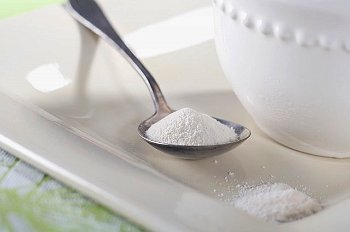Inflammatory bowel disease (IBD) recurrence linked with depression and anxiety symptoms
 Inflammatory bowel disease (IBD) recurrence is linked with depression and anxiety symptoms. Lead researcher Antonina Mikocka-Walus said, “It thus seems prudent to recommend that screening for common mental disorders and referring for psychological/psychiatric treatment should be included in standard IBD care.” The author reported, “The relationship of depression and anxiety with disease activity in IBD has been controversial, with no causal link established to date.”
Inflammatory bowel disease (IBD) recurrence is linked with depression and anxiety symptoms. Lead researcher Antonina Mikocka-Walus said, “It thus seems prudent to recommend that screening for common mental disorders and referring for psychological/psychiatric treatment should be included in standard IBD care.” The author reported, “The relationship of depression and anxiety with disease activity in IBD has been controversial, with no causal link established to date.”
The researchers conducted a survey of literature and found that seven of 12 studies positively revealed an association between depression and anxiety and IBD flare-ups – while the remaining five did not. They suggest that the differences in results were dependent on different research methods and study design, including sample size, observation period, and anxiety assessment methods.
The researchers then conducted a prospective study using the Swiss IBD cohort to look at the association between IBD and depression and anxiety. The participants had either Crohn’s disease, ulcerative colitis, or indeterminate colitis.
At baseline, 20.2 percent of participants exceeded the cut-off score for depression, and 37.5 percent exceeded the anxiety score. Rates of depression were shown to be equal between both sexes, but females were more likely to experience anxiety, compared to males.
The researchers found that clinical recurrence of IBD was sooner among those with depression or anxiety, compared to those who did not have either psychological disorder. Gender did not play a role in this factor.
Depression also had higher associations with fistulas, surgery, and steroid use in Crohn’s disease patients and ulcerative colitis patients with Crohn’s disease. Anxiety was associated with flare-ups in ulcerative colitis and Crohn’s disease, as well as steroid use in ulcerative colitis. Depression and anxiety were associated with greater biologics use in Crohn’s disease as well.
Anxiety and IBS recurrence was weaker than depression and IBD recurrence. The researchers also found that apathy in depression may lower treatment compliance.
David J. Gracie and Alexander C. Ford wrote, “Previous studies have only examined this issue using a cross-sectional design, meaning that causality cannot be established, so the findings are therefore novel and important, and provide support for the existence of brain-gut interactions, which may affect the natural history of IBD. Whatever the reason for this association, it has important implications for future management strategies in IBD. It suggests that a paradigm shift away from therapies focused solely on reducing the inflammatory burden is needed in a subset of patients.”
Inflammatory bowel disease: symptoms and possible complications
Symptoms of inflammatory bowel diseases can include the following:
- Diarrhea
- Bleeding ulcers
- Stomach pain
- Weight loss
- Anemia
- Fissures – commonly located around the genitals or the anus
- Eye inflammation
- Skin disorders
- Arthritis
- Canker sores
Because inflammatory bowel disease mainly affects the gut and digestive system, many complications can arise, including malnutrition, increased risk for colon cancer, fistulas (ulcers that permeate through the bowel wall, creating holes along the digestive tract), intestinal ruptures, and bowel obstructions.
In rare incidences, IBD can contribute to shock as part of an episode of blood diarrhea. This condition can be life-threatening if not treated immediately.
By following the treatment plan set out by your doctor, you can better protect yourself against the complications associated with IBD and reduce the occurrence of symptoms. It is also important that you manage your mental health and seek help for any depression or anxiety episodes as this too can contribute to worsened IBD.
IBD, ulcerative colitis, and Crohn’s disease treatment potential with mucus in colon
Inflammatory bowel disease (IBD), ulcerative colitis, and Crohn’s disease treatment may be possible with mucus in colon. Although many of us may find mucus to be unpleasant, research has found that it may hold benefits in the treatment of IBDs by helping the body maintain its equilibrium, prevent inflammation, and reduce food allergy problems. Continue reading…
-
Dash Diet Dietary Approaches To Stop Hypertension DASH
Hypertension is another name for high blood pressure. Blood pressure i
-
How Fast Food can help you Lose Weight
Until now you were getting screamed at for eating junk food or fast f
-
15 Must Know Ways To Lose Weight Fast!
Want to lose weight fast? Its easy to say goodbye to 10 pounds of u
-
Weight Loss Methods - Which Vitamins Are Required?
There are some forms of nutrients which are required for the overall h
-
Set Realistic Weight Loss Goals
How much weight do you want to lose? Are you being realistic about ho
-
Weight loss apps for iPhones
Losing weight is no easy feat. Weve selected the best iPhone apps to
- DON'T MISS
- Advice On How To Lose Weight And Keep It Off
- The Pros and Cons of FDA Weight Loss Pills
- Running - There is an Inescapable Correlation Between Weight and Cardiovascular Efficiency - Part 5
- The Low Glycemic Index Diet And Its Benefits For Diabetics
- The Best exercises for weight loss
- Side effect of allergy medication you didn’t know
- How to Lose Weight and Keep it Off During the Holiday Season
- Exercises and Diet Tips For a Big Stomach
- Sugar Surprise How Much Sugar Are You Eating
- The Possibly Dangerous Complications of Plant based Dieting Programs




